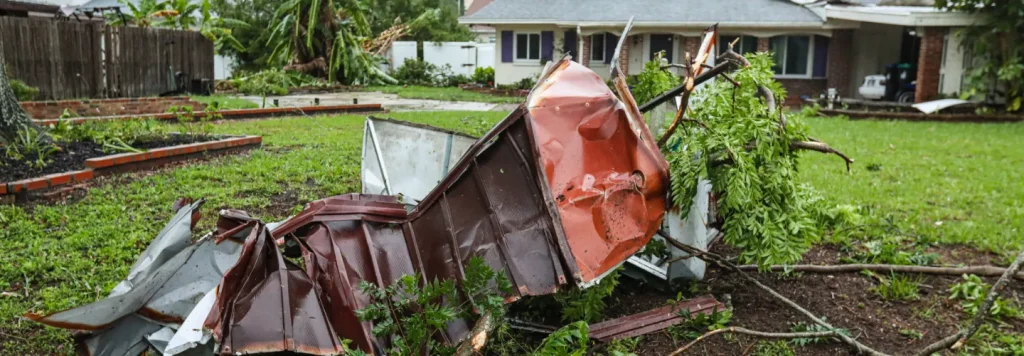When temperatures start dropping, one of your biggest concerns as a homeowner should be how to keep your pipes from freezing.
There are lots of changes that come with the seasons, but winter brings with it a host of potential hazards. As a homeowner, it’s vital to be aware of these potential problems and take steps to mitigate a calamity. When temperatures dip, be sure to think of your water and how to keep it from freezing. Frozen water pipes are more than just a slight inconvenience; if left alone, they can lead to a burst pipe and a costly mess.
With the help of The Andover Companies, discover the causes for pipe freezing and some steps on how to prevent frozen pipes.
Why Do Pipes Freeze & Burst?
Pipes freeze for a variety of reasons, but all of them are centered around temperature. The pipes in your home that are most vulnerable to freezing are the ones located in unheated interior spaces, such as your basement, attic, or garage. When temperatures plummet, these pipes can get very cold and the water flowing through them may begin to turn to ice. As the water becomes ice, it expands and puts tremendous pressure on the pipes. This can lead to a pipe rupture that sends a cascade of water into your home (as a single pipe burst can release 4-8 gallons of water per minute).
How To Prevent Frozen Pipes
In order to do your best to prevent your pipes from freezing, we recommend checking these four key things:
- Insulation – Winterize both the hot- and cold-water pipes in your home (including the waterline that runs from the sink to the fridge) with the proper insulation to reduce heat loss and cut water-heating costs.
- Thermostat Regulation – During a cold snap, keep the heat in your home at the same temperature (day and night) and leave it set to at least 60°F if you are going to be away.
- Running Water – Let cold water drip from faucets supplied by exposed piping—even a trickle of water running through the pipes is a pressure relief.
- Warm Air Circulation – Open kitchen and bathroom cabinet doors to allow warm air to get to plumbing, but close garage doors, where water supply lines are often located.
Warning Signs
Despite our best efforts, sometimes there is very little we can do to truly prevent a freeze. After going through the prevention tips above, be sure to keep an eye out for any early warning signs that your pipes may be freezing/frozen. These can include:
- Significantly lower water pressure than normal
- Visible frost on an exposed pipe
- Strange odors coming from the drain
Potential Problems After a Pipe Burst
If your pipes freeze and burst, the water damage to your home can be extensive (and expensive). On average, homeowner claims for water damage and freezing is $11,000 or more and, depending on the location and severity of the situation, problems may include:
- Waterlogged insulation
- Shorted-out electrical wiring and outlets
- Structural weakness in interior and exterior walls
- Warped and cracked flooring
- Moldy and smelly carpeting
- Soaked furniture fabric and upholstery
- Damp drywall and wood
What To Do if Your Pipes Burst
If a pipe has already burst, the most important thing to do is shut off the water flow to your home. The main water switch is typically found under the kitchen sink or where the main service pipe from the street connects to your house. After you’ve switched off the water main, then you can hire professionals to not only repair the burst pipe, but also dry out any soaked areas before mold or mildew form.
It’s not recommended to try to thaw a frozen pipe yourself, as doing so may cause further damage to your plumbing or result in injury. Instead, be sure to always contact a licensed, insured plumber to do the job for you.
If you’re a homeowner, be sure to check in on your pipes this winter. It’s even possible to get smart technology for your home that will monitor water flow, pressure, and temperature to help you maintain your pipes and prevent water damage. And, if you haven’t already, be sure you know what damages would be covered in your homeowners policy if you’re ever to fall victim to a frozen pipe. If you’re a Feltner Group customer, contact us today to make sure you’ve got the coverage you need as temperatures begin to drop.
